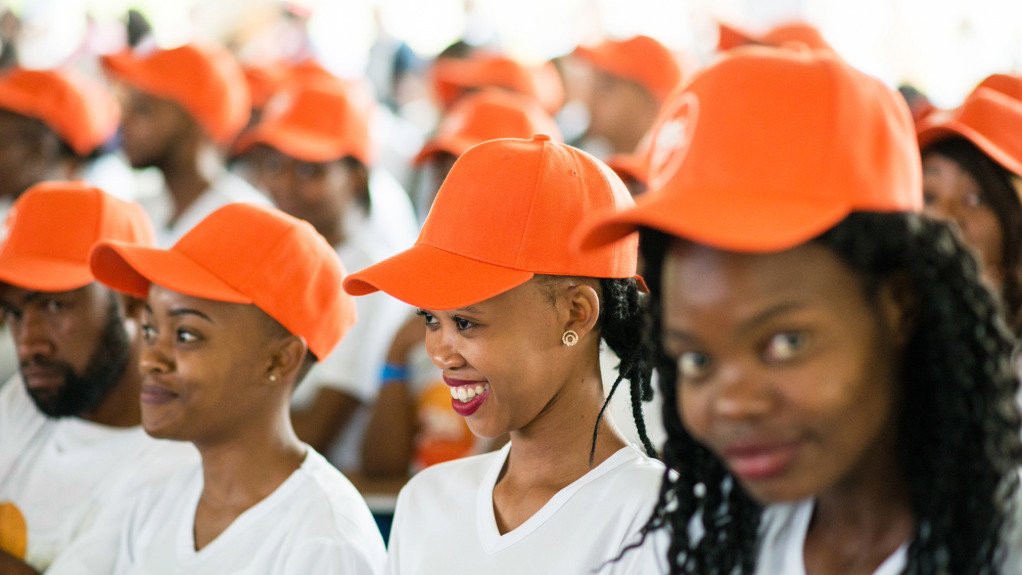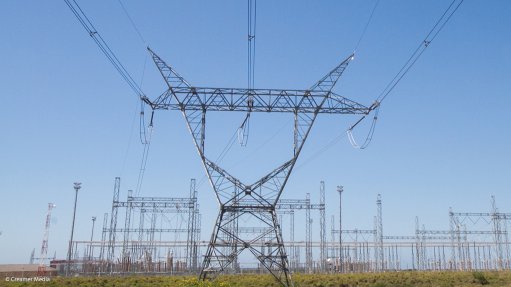Youth service addresses skills deficit, enabling future success


NURTURING THE FUTURE The YES initiative provides a 12-month work experience programme, placing young people in relevant, future-facing roles
Addressing youth unemployment and the associated skills deficit are crucial for ensuring a sustainable and equitable future for the South African mining sector. The private-sector-led Youth Employment Service (YES) initiative plays a key role in this effort, says YES strategic research and marketing services head Simona Mazza.
The mining industry continues to directly employ about 481 000 people, according to Statistics South Africa, and provides at least that many jobs in supporting industries.
However, the industry is also facing significant challenges including constrained infrastructure and dwindling reserves of traditional minerals like gold. Further, Mazza notes concerns about mine safety, environmental damage and community dependence on mines.
Despite these issues, significant opportunities also exist, owing to the rich deposits of critical minerals that South Africa possesses, which are essential for the green energy transition. Additionally, technological advancements and other innovations are being leveraged to enhance productivity, safety and efficiency in operations.
Aligned with the environmental, social and governmental (ESG) pillars, mining companies are also increasingly prioritising environmental responsibility and social development initiatives to minimise negative impacts and create shared value for communities.
Workforce Transformation
The mining industry is undergoing a significant transformation in its workforce, which includes efforts to upskill existing employees and increase diversity and inclusion.
Mazza emphasises the industry’s focus on attracting young talent into mining, as there is a current lack of a talent pipeline to meet future needs, with the industry seemingly being less appealing to the current generation.
She explains that the industry requires individuals with skills in artificial intelligence, robotics and automation to navigate the evolving landscape of mining operations.
While acknowledging that mines can “seek out talent at South Africa’s top schools and universities”, doing so exclusively would ignore a large cohort of talent at South Africa’s disadvantaged schools.
“Those high-potential individuals need to be found, nurtured and fed into the talent pipeline in preparation for the full range of mining jobs,” Mazza says.
The YES initiative can address the talent pipeline issue by providing a 12-month work experience programme that places young people in relevant, future-facing roles.
Mining companies can collaborate with YES in three ways. The first is that youth can be placed in their head offices. The second way is to place youth within the mining supply chain, ensuring that companies’ suppliers are supported with young talent.
The third enables mines to choose to place youth in nonprofit organisations within the mining communities, which impacts companies’ ESG and Sustainable Development Goals targets.
Impact of YES
Since its launch in 2018, YES has evolved to include over 1 700 corporate participants, making it the largest youth employment programme funded solely by the private sector, Mazza explains.
While historically used to boost broad-based black economic empowerment ratings, she explains that companies are shifting focus with the initiative towards enhancing sustainability impact outcomes, with 20% of YES jobs now catering to this goal.
“Companies have employment equity targets to meet by 2029, and YES qualifies as part of the five-year plan for many of our companies,” she adds.
Companies aligned with the programme can show regulators a five-year plan that transforms YES-affiliated youth into future middle management. It also contributes to companies’ social and labour plans and supports the Trusted Employer Scheme by demonstrating skills transfer efforts.
Article Enquiry
Email Article
Save Article
Feedback
To advertise email advertising@creamermedia.co.za or click here
Comments
Press Office
Announcements
What's On
Subscribe to improve your user experience...
Option 1 (equivalent of R125 a month):
Receive a weekly copy of Creamer Media's Engineering News & Mining Weekly magazine
(print copy for those in South Africa and e-magazine for those outside of South Africa)
Receive daily email newsletters
Access to full search results
Access archive of magazine back copies
Access to Projects in Progress
Access to ONE Research Report of your choice in PDF format
Option 2 (equivalent of R375 a month):
All benefits from Option 1
PLUS
Access to Creamer Media's Research Channel Africa for ALL Research Reports, in PDF format, on various industrial and mining sectors
including Electricity; Water; Energy Transition; Hydrogen; Roads, Rail and Ports; Coal; Gold; Platinum; Battery Metals; etc.
Already a subscriber?
Forgotten your password?
Receive weekly copy of Creamer Media's Engineering News & Mining Weekly magazine (print copy for those in South Africa and e-magazine for those outside of South Africa)
➕
Recieve daily email newsletters
➕
Access to full search results
➕
Access archive of magazine back copies
➕
Access to Projects in Progress
➕
Access to ONE Research Report of your choice in PDF format
RESEARCH CHANNEL AFRICA
R4500 (equivalent of R375 a month)
SUBSCRIBEAll benefits from Option 1
➕
Access to Creamer Media's Research Channel Africa for ALL Research Reports on various industrial and mining sectors, in PDF format, including on:
Electricity
➕
Water
➕
Energy Transition
➕
Hydrogen
➕
Roads, Rail and Ports
➕
Coal
➕
Gold
➕
Platinum
➕
Battery Metals
➕
etc.
Receive all benefits from Option 1 or Option 2 delivered to numerous people at your company
➕
Multiple User names and Passwords for simultaneous log-ins
➕
Intranet integration access to all in your organisation



















